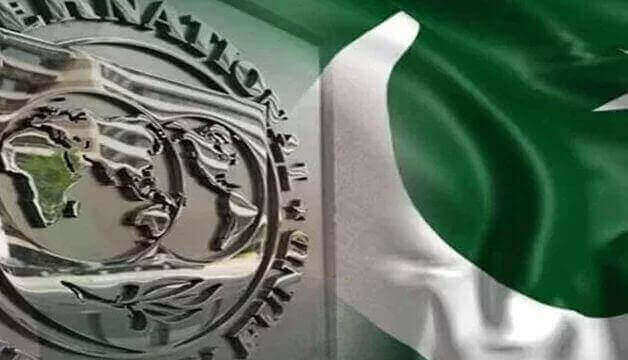Last Updated on: 25th July 2023, 03:25 am
IMF Silent On Floods, But Can Pakistan Expect Favors?
After months of back-and-forth between Islamabad and Washington, DC, Pakistan finally secured a 1.1 billion USD bailout from the International Monetary Fund, ending fears of immediate default. Admittedly, this is a relief for at least the financial markets and the general investment climate, but the recent floods could complicate Pakistan’s path to economic stability. Would the IMF be willing to offer some flexibility on the terms of its deal in these unprecedented times?
The IMF’s macroeconomic terms and targets were agreed upon before the floods fueled concerns of an economic and humanitarian crisis, and the fund’s most recent statement makes no mention of the disaster.
Planning Minister Ahsan Iqbal recently told Reuters that the deadly floods are likely to cost the country more than 10 billion USD, according to preliminary estimates.
The government of Pakistan may request a deferral of loan payments amid the national emergency, similar to extensions granted during the COVID-19 pandemic, Sana Tawfik, a senior analyst at Arif Habib, told news media.
Under the deal with the IMF, Pakistan will have to post a primary budget surplus of 0.2% of GDP in FY23. Tax revenue from reduced imports, Sana said.
“We receive waivers because we have not had a primary surplus in the past,” he added.
Pakistan could present its case at a follow-up meeting with the IMF, setting the stage for a possible renegotiation or revision of some terms, Sana said. “It depends on the strength of the Pakistan case…but I’m sure the IMF will take care of it,” she added.
Inflation And GDP Outlook
The IMF expects the country’s GDP to contract to 3.5% in FY23 from 6% last year, while Arif Habib forecasts economic growth of 49% this fiscal year. Sana reported disruption in agriculture, industry, and service sectors due to heavy monsoon rains and said inflationary pressures from food are expected to increase further.
“Food shortages will lead to supply-side shocks,” Sana said. The IMF expects headline inflation to accelerate from 12.1% in fiscal 2022 to 19.9% in the current fiscal year.
On August 22, the State Bank of Pakistan estimated FY23 GDP growth at 3% to 4% but warned that the rains could weigh on economic activity due to their expected impact on agricultural production.
The SBP estimated inflation would peak in the first quarter after hitting 24.9% in July, with slower price growth expected for the rest of the year as demand weakens.
According to a report by Arif Habib on April 29, about 3.4% of the total acreage has been damaged, which is “a major cause for concern as agriculture contributes nearly 19% to Pakistan’s GDP and employs nearly 42% of the labor force,” it said in the report.
Where is USD-PKR Heading?
While there is uncertainty about how the IMF would deal with a possible request from Pakistan to ease certain conditions, there is something to celebrate. The deal with the IMF not only frees up critical funds needed to keep the economy afloat but also paves the way for the release of future funds from allies. While FX reserves are expected to rise, particularly due to flood relief, the USD-PKR rate could see some much-needed recovery and stability.
“Following IMF approval, additional dollar funds to Pakistan are likely to come from bilateral, multilateral, and other sources that will support foreign exchange reserves,” Topline Securities’ Umair Naseer said in a report.
“It will also bring stability to the currency, which has recently come under pressure due to uncertainty about the future of the IMF program.”
Sana expects the USD-PKR rate to remain range-bound in the short-term but to reach between 205-210 in December. “The timing of the inflows that we expect would be crucial,” he said, as would developments in international commodity prices and the development of the dollar index.
Also Read: IMF Will Now Give Loan To Pakistan
Final Words
To put it mildly, Pakistan is at a critical economic tipping point and the road ahead may be bumpy. While the IMF deal helps shore up reserves and stabilize the currency, the work is not done. The IMF has called for structural reforms to strengthen governance and improve the business environment, which, if implemented, would go a long way to strengthening our fundamentals.
However, the recent floods could derail Pakistan’s economic recovery, necessitating a constructive engagement with the IMF on local realities. The IMF should be ready to listen, but are we ready to have this conversation? let’s find out.
Also Read: Realignment Of The IMF Program To Rebalance The Economy, Says PM Shehbaz

